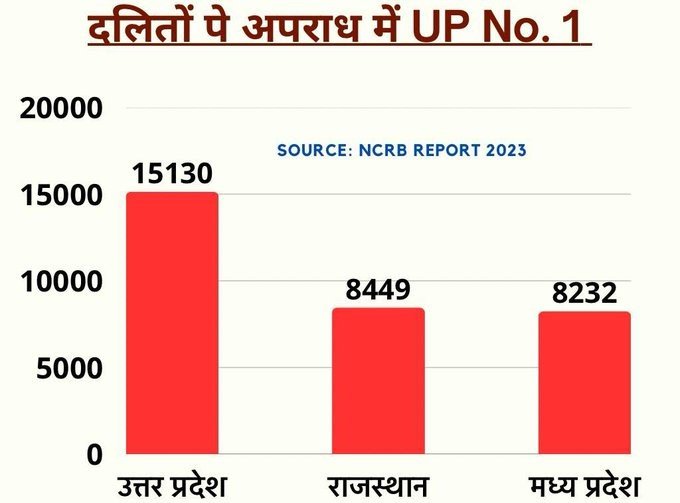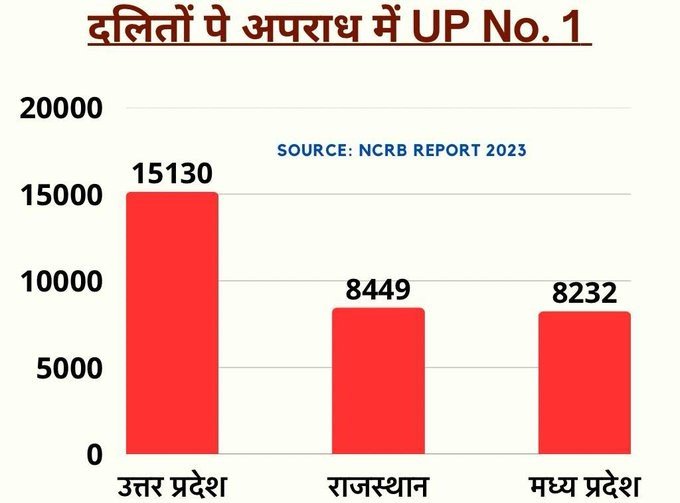
ARABIAN TIMES NEWS NETWORK
The work of the BJP government should not be seen only through the lens of favoritism, but also through the eyes filled with pain. In Uttar Pradesh, Dalit oppression is at its peak. These were the powerful words of Samajwadi Party Chief, Akhilesh Yadav, shared on his official X account, drawing attention to an issue that remains deeply entrenched in the state’s socio-political landscape.
Yadav’s statement is not merely a political remark; it is a call to the conscience of the nation. The plight of Dalits in Uttar Pradesh, and indeed across India, is not new. However, his post emphasizes that the ongoing injustices cannot be ignored any longer. Oppression in the name of caste, in the world’s largest democracy, stands as a dark contradiction to the ideals of equality, liberty, and fraternity enshrined in the Constitution.

Akhilesh Yadav, in his message, underscored that beyond economic and infrastructural claims made by the ruling BJP, the ground reality reveals a disturbing picture of systemic discrimination. He called for multiple levels of engagement to highlight and address the crisis. Among his suggestions were: a TV show to shed light on Dalit oppression, hoardings that display the bitter truths, and a detailed report to be broadcast and published as news. These, he suggested, would ensure that the issue does not remain hidden behind glossy narratives of development.
Yadav further stressed the need for institutional responses. He called for an SIT investigation into cases of Dalit oppression, the inclusion of a chapter in educational curricula to sensitize future generations, and the establishment of an inquiry commission dedicated to examining these atrocities. His proposals also included the creation of a special force focused solely on eradicating Dalit oppression, a white paper to expose the magnitude of the crimes, and a roadshow to spread awareness among the masses.
Perhaps most strikingly, he demanded a five-thousand-year commemorative event to acknowledge the historical roots of this oppression and to awaken the collective conscience of society. The Samajwadi Party leader’s post is not just a critique of the BJP government; it is also an indictment of society’s silence. The call for a TV show or a hoarding may seem symbolic, but in an era driven by media narratives, visibility is a powerful tool.
By demanding institutional actions such as commissions, SITs, and white papers Yadav places accountability firmly on the state machinery. And by invoking history, he reminds us that caste-based oppression is not a recent phenomenon but a millennia-old injustice that continues to wound India’s democratic promise. The urgency in Akhilesh Yadav’s words resonates with the need for collective action. Political parties, civil society, and common citizens must come together to confront this reality.
For too long, caste-based violence has been brushed aside as isolated incidents, but the truth is that these are systemic and widespread. If Uttar Pradesh, and India, seeks to move forward as a just and equitable society, then the cries of the marginalized must no longer be ignored. The time for symbolic solidarity has passed. What is needed now is sustained effort, concrete action, and above all, a recognition that the dignity of every human being must be protected. As Akhilesh Yadav rightly pointed out, Dalit oppression is at its peak, and the time has come for society to rise against it.







